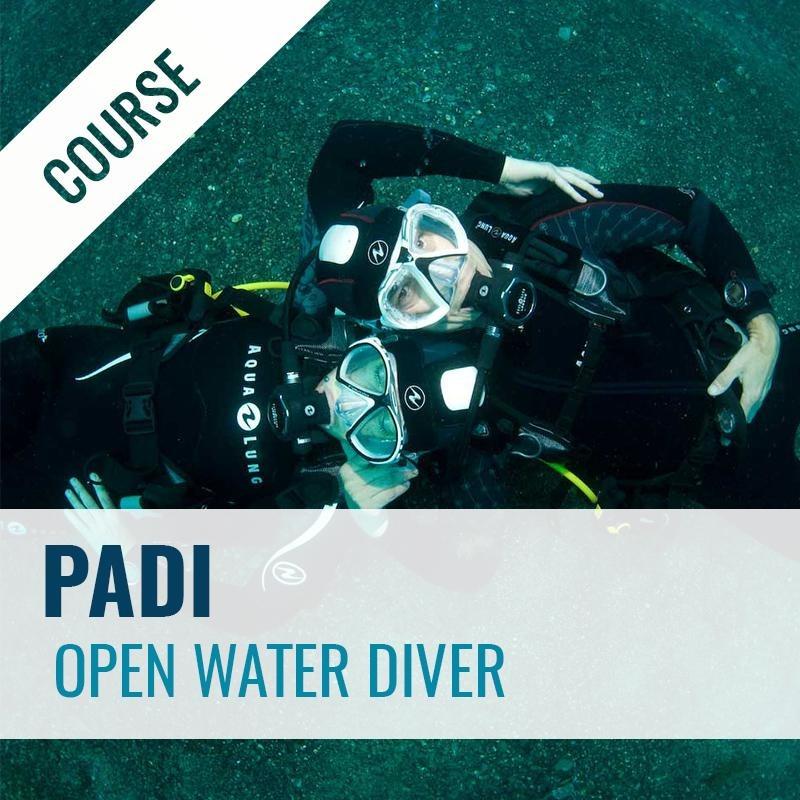Shop
Link to your collections, sales and even external links
Add up to five columns
Link to your collections, sales and even external links
Add up to five columns
Career Courses
Short Courses
Add up to five columns

Add up to five columns
Come Diving
Freediving Frequently Asked Questions
-
Snorkelling is the casual act of putting on a mask and snorkel and looking below while floating. Snorkelers may not have any training and generally spend most of the time on the surface. Skin diving takes snorkelling a step further by adding short dives underwater. Skin divers may have training that teaches skills, such as efficient dives and snorkel-clearing. Freediving uses advanced breathing techniques and diving skills to increase depth and time underwater. Through training, freedivers learn conserve oxygen while breathholding while practicing different freediving disciplines, such as static apnea, dynamic apnea, free immersion and constant weight freedives..
-
The PADI Freediver course contains three phases – knowledge development, a confined water sessions and open water sessions. During knowledge development you learn about how your body reacts to breathholding and how water pressure affects you as you dive down. You also learn about freediving equipment, important safety rules and buddy procedures.
-
In confined water, such as a swimming pool, you learn breathing techniques, then practice breathholds while floating (static apnea) and while swimming (dynamic apnea). You also practice basic rescue techniques and learn your role as a buddy.
During at least two open water sessions, you practice diving down while breathholding, either by pulling yourself along a line (free immersion) or duck diving head first while following a line (constant weight). You learn to gradually increase your depths by relaxing and enjoying each dive. Rescue practice is another key part of the open water sessions.
-
The PADI Freediver course is flexible and performance based, which means that we can offer a wide variety of schedules, organised according to how fast you progress. Usually candidates can successfully complete the programme in 2.5 days.
Knowledge development is handled through independent study with the PADI Freediver Touch™ – an interactive tablet based app. You pace yourself as you work through each topic, then complete an overall Knowledge Review, then an Exam.
During confined and open water sessions, your PADI Freediver Instructor will focus on helping you become a confident and comfortable freediver, not on how long it takes. You earn your certification based on demonstrating you know what you need to know and can do what you need to do. This means that you progress at your own pace – faster or slower depending upon the time you need – to become a competent freediver.
-
Anyone who can successfully meet the RSTC medical and performance requirements of the course can become a PADI certified diver. Many of the skills are flexible in how they can be mastered and our qualified instructors will work with you using adaptive techniques to help you on your way to certification.
-
The minimum age is 15 years old for the PADI Freediver course and 12 years old for the PADI Basic Freediver certification. PADI Basic Freediver is a subset program on the PADI Freediver course that only includes knowledge development and a confined water session.
All student divers complete a medical history form that asks about medical conditions that could be a problem while freediving. If none of these apply, sign the form and you’re ready to start. If any of these apply to you, your doctor must, as a safety precaution, assess the condition as it relates to freediving and sign a medical form that confirms you’re fit to dive. In some areas, local laws require all students to consult with a physician before entering the course. Download the PADI Freediver Medical History Form.
Your PADI Freediver Instructor will have you demonstrate basic water skills to be sure you’re comfortable in the water. This is a 200-metre/yard swim or 300-metre/yard swim using a mask, fins and snorkel without stopping. There is no time limit for this, and you may use any swimming strokes you want.
Any individual who can meet the performance requirements of the course qualifies for certification. There are many adaptive techniques that allow individuals with physical challenges to meet these requirements.
-
No, assuming you have no irregularities in your ears and sinuses. The discomfort is the normal effect of water pressure pressing in on your ear drums. Fortunately, our bodies are designed to adjust for pressure changes in our ears – you just need to learn how. If you have no difficulties adjusting to air pressure during flying, you'll probably experience no problem learning to adjust to water pressure while freediving.
-
As a freediver certified through another training organization, you can enroll in the next higher level in the PADI Freediver system after a skills and knowledge assessment by a PADI Freediver Instructor. The level you can enroll into depends on your current certification. Check with your PADI Regional Headquarters to confirm.
-
Any condition that affects the ears, sinuses, respiratory or heart function, or may alter consciousness is a concern, but only a doctor can assess a person’s individual risk. Doctors can consult with the Divers Alert Network (DAN) as necessary when assessing fitness to dive. Download the PADI Freediver Medical History Form to take to your doctor.




